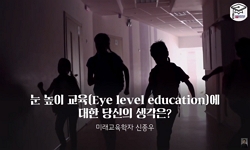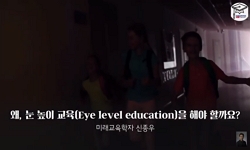Non-Contact society has arrived due to social distinctions by COVID 19 pandemic. The arrival of the era of non-contact is having a profound impact on educational activities as well as on our social and economic lives. In response to the pandemic situa...
http://chineseinput.net/에서 pinyin(병음)방식으로 중국어를 변환할 수 있습니다.
변환된 중국어를 복사하여 사용하시면 됩니다.
- 中文 을 입력하시려면 zhongwen을 입력하시고 space를누르시면됩니다.
- 北京 을 입력하시려면 beijing을 입력하시고 space를 누르시면 됩니다.
https://www.riss.kr/link?id=A107262146
- 저자
- 발행기관
- 학술지명
- 권호사항
-
발행연도
2021
-
작성언어
Korean
-
주제어
Non-Contact ; Education ; Non Face-To-Face ; Practical Class ; Vocal Instruction ; 비접촉 ; 교육 ; 비대면 수업 ; 실기 수업 ; 가창 수업 방법
-
KDC
691
-
등재정보
KCI등재
-
자료형태
학술저널
-
수록면
27-38(12쪽)
-
KCI 피인용횟수
9
- DOI식별코드
- 제공처
-
0
상세조회 -
0
다운로드
부가정보
다국어 초록 (Multilingual Abstract)
Non-Contact society has arrived due to social distinctions by COVID 19 pandemic. The arrival of the era of non-contact is having a profound impact on educational activities as well as on our social and economic lives. In response to the pandemic situation universities and all other educational institutions have implemented non-contact online classes. In particular arts physical educations and other practical classes are experiencing many difficulties due to the limited environment caused by social distancing from COVID 19 pandemic. Vocal classes are undergoing a transition mainly from 1:1 individual face-to-face lessons or group teaching methods to the non-contact era of online teaching or lesson methods. It is necessary to look at the direction of non-face-to-face practical classes in preparation for accelerated educational innovation. Edu-tech, which innovates technology in the wake of the age of non-contact after COVID 19 pandemic is expected to begin in earnest at school sites in Korea which have remained in the traditional way of education. The purpose of this study is to effectively non-contact vocal instructional methods by cogitating the current state of higher practical education and vocal classes in Korea. In addition, This study conducted two components of satisfied instructions such as ‘Priorlearning of monitoring of recorded singing’, and ‘Immediate analyzing of various vocal contents and supplementary lessons of music theory’ with a research on the peos and cons of non-face-to-face vocal class. Over a period of time, The effective non-contact of vocal instructional methods is in need to supplement non-face-to-face vocal class problems and further research and system construction with non-face-to-face vocal class’s pros and cons to construct high-quality lecture contents is warranted.
참고문헌 (Reference)
1 "한국대학신문"
2 "한국 교육개발원 교육통계연구센터와 OECD"
3 백선혜, "포스트코로나시대 비대면 공연예술의 전망과 과제" 서울연구원 1-30, 2020
4 김상미, "코로나19 관련 온라인 교육에 관한 국내 언론보도기사 분석" 한국디지털콘텐츠학회 21 (21): 1091-1100, 2020
5 오재호, "코로나 19가 앞당긴 미래, 교육하는 시대에서 학습하는 시대로"
6 이경호, "제4차 산업혁명시대 학교교육 혁신방안 탐색 : 미국 ‘미네르바 스쿨’ 혁신사례를 중심으로" 교육연구소 26 (26): 179-199, 2020
7 이나핼, "온라인 학습 플랫폼을 활용한 플립드 러닝감각 통합 수업이 학습 참여에 미치는 효과" 한국엔터테인먼트산업학회 12 (12): 247-256, 2018
8 김용삼, "온라인 자기주도학습 수업이 대학생의 자아개념 증진에 미치는 효과" 영재교육연구소 7 (7): 71-89, 2017
9 최진숙, "온라인 교육문화혁명: MOOC" 글로벌 문화콘텐츠학회 (14) : 179-198, 2014
10 이지은, "에듀테크로 촉발되는 고등교육의 위기와 기회" 한국경영학회 24 : 151-171, 2020
1 "한국대학신문"
2 "한국 교육개발원 교육통계연구센터와 OECD"
3 백선혜, "포스트코로나시대 비대면 공연예술의 전망과 과제" 서울연구원 1-30, 2020
4 김상미, "코로나19 관련 온라인 교육에 관한 국내 언론보도기사 분석" 한국디지털콘텐츠학회 21 (21): 1091-1100, 2020
5 오재호, "코로나 19가 앞당긴 미래, 교육하는 시대에서 학습하는 시대로"
6 이경호, "제4차 산업혁명시대 학교교육 혁신방안 탐색 : 미국 ‘미네르바 스쿨’ 혁신사례를 중심으로" 교육연구소 26 (26): 179-199, 2020
7 이나핼, "온라인 학습 플랫폼을 활용한 플립드 러닝감각 통합 수업이 학습 참여에 미치는 효과" 한국엔터테인먼트산업학회 12 (12): 247-256, 2018
8 김용삼, "온라인 자기주도학습 수업이 대학생의 자아개념 증진에 미치는 효과" 영재교육연구소 7 (7): 71-89, 2017
9 최진숙, "온라인 교육문화혁명: MOOC" 글로벌 문화콘텐츠학회 (14) : 179-198, 2014
10 이지은, "에듀테크로 촉발되는 고등교육의 위기와 기회" 한국경영학회 24 : 151-171, 2020
11 조영탁, "에듀테크 교육 혁명과 인재 양성" 2018 : 5-12, 2018
12 배영임, "언택트 사회를 가속화하다" 경기연구원 1-26, 2020
13 이용섭, "언컨택트" 퍼블리온 2020
14 이병현, "미국 MOOC 최근 운영동향을 통해 본 MOOC 역할과 K-MOOC 운영에 대한 시사점" 한국교육정보미디어학회 23 (23): 227-251, 2017
15 강익모, "문화예술교육사 자격인증을 위한 사이버대학 교육과정의질(質)관리 방안 연구" 한국엔터테인먼트산업학회 10 (10): 197-213, 2016
16 BRIC, "대학 온라인 강의에 대한 의견수렴 조사"
17 "네이버 지식백과"
18 "교육 전문신문 베리타스알파"
19 Schenker, J., "The Future after Covid" Kindle n Edition 2020
20 "MKTV 김미경 TV 불황 이후 - 펜데믹 특집"
21 김명희, "K-MOOC의 최근 변화 추세와 도전과제" 사단법인 아시아문화학술원 10 (10): 1345-1358, 2019
22 유명의, "COVID-19 와 공연문화 변화에 관한 조사 연구" 한국일러스아트학회 23 (23): 103-113, 2020
23 "BRIC 대학 온라인 강의에 대한 의견수렴 조사"
24 이혜정, "4차 산업혁명 시대 대학교육 혁신 방안 탐색: 미네르바스쿨 사례를 중심으로" 원격교육연구소 15 (15): 59-84, 2019
25 정태린, "2020년 1학기 수업을 수강한 대학생의 비대면 교양체육 수업의 질, 부정적 학습감정, 수업만족도간 경로 분석" 한국스포츠학회 18 (18): 509-519, 2020
동일학술지(권/호) 다른 논문
-
빅히트 엔터테인먼트의 콘텐츠 혁신 : 기업가적 리더십과 플랫폼 전략을 중심으로
- 한국엔터테인먼트산업학회
- 권상집(Sang-Jib Kwon)
- 2021
- KCI등재
-
백제〈호선무(百濟胡旋舞)〉버전 콘텐츠 설정연구 - 한류(韓流)의 진원 〈백제기악(百濟伎樂)〉을 중심으로 -
- 한국엔터테인먼트산업학회
- 손대환(Dae-Hwan Son)
- 2021
- KCI등재
-
마음 챙김 명상을 위한 음악 창작의 감성적 접근 방안 : 테레민 악기의 활용을 중심으로
- 한국엔터테인먼트산업학회
- 김희연(Hi-Yeon Kim)
- 2021
- KCI등재
-
- 한국엔터테인먼트산업학회
- 유태경(Tae-Kyung Yoo)
- 2021
- KCI등재
분석정보
인용정보 인용지수 설명보기
학술지 이력
| 연월일 | 이력구분 | 이력상세 | 등재구분 |
|---|---|---|---|
| 2022 | 평가예정 | 재인증평가 신청대상 (재인증) | |
| 2019-01-01 | 평가 | 등재학술지 유지 (계속평가) |  |
| 2016-01-01 | 평가 | 등재학술지 선정 (계속평가) |  |
| 2015-01-01 | 평가 | 등재후보학술지 유지 (계속평가) |  |
| 2013-01-01 | 평가 | 등재후보학술지 유지 (기타) |  |
| 2012-01-01 | 평가 | 등재후보 1차 PASS (등재후보1차) |  |
| 2010-01-01 | 평가 | 등재후보학술지 선정 (신규평가) |  |
학술지 인용정보
| 기준연도 | WOS-KCI 통합IF(2년) | KCIF(2년) | KCIF(3년) |
|---|---|---|---|
| 2016 | 0.79 | 0.79 | 0.72 |
| KCIF(4년) | KCIF(5년) | 중심성지수(3년) | 즉시성지수 |
| 0.7 | 0.67 | 0.781 | 0.27 |




 DBpia
DBpia






